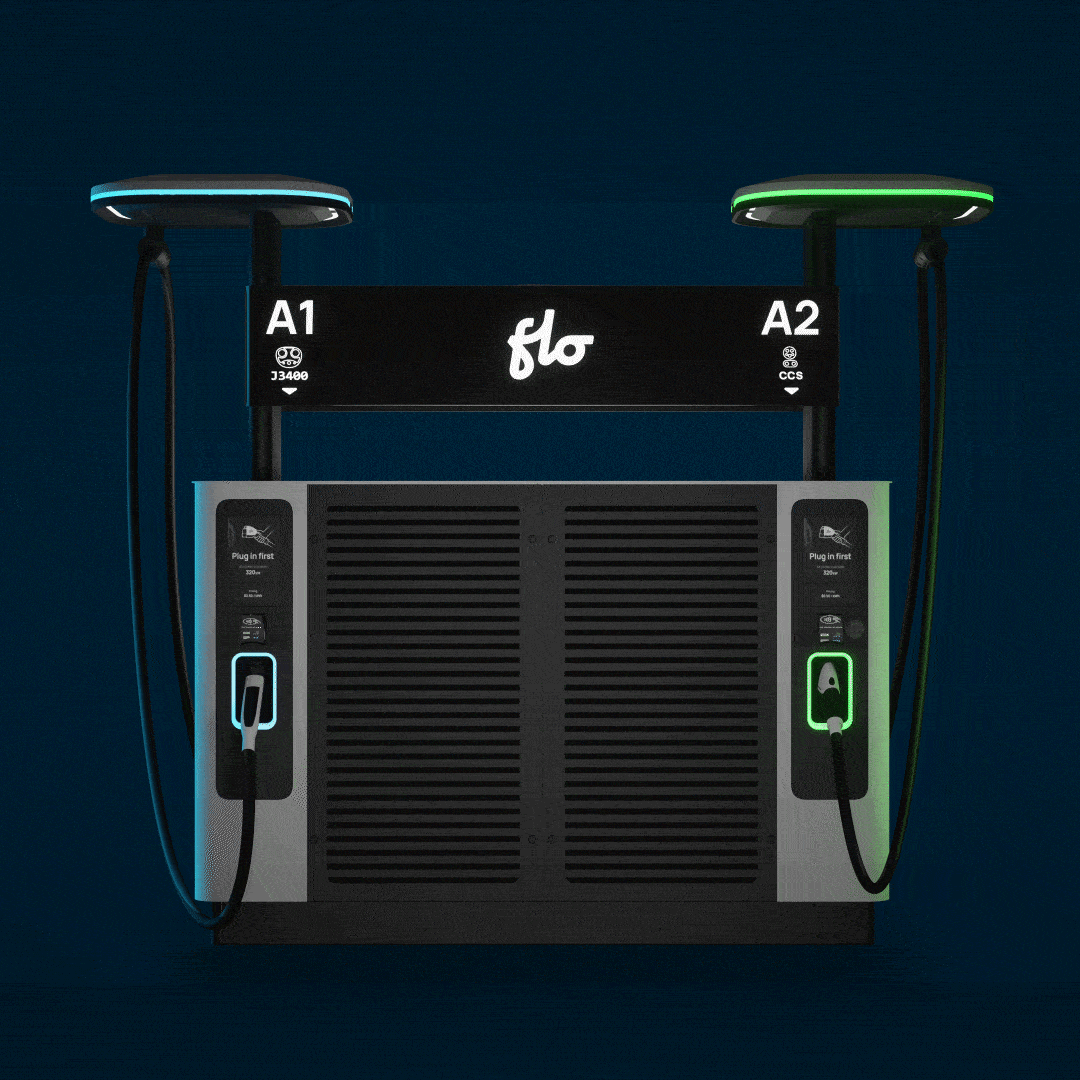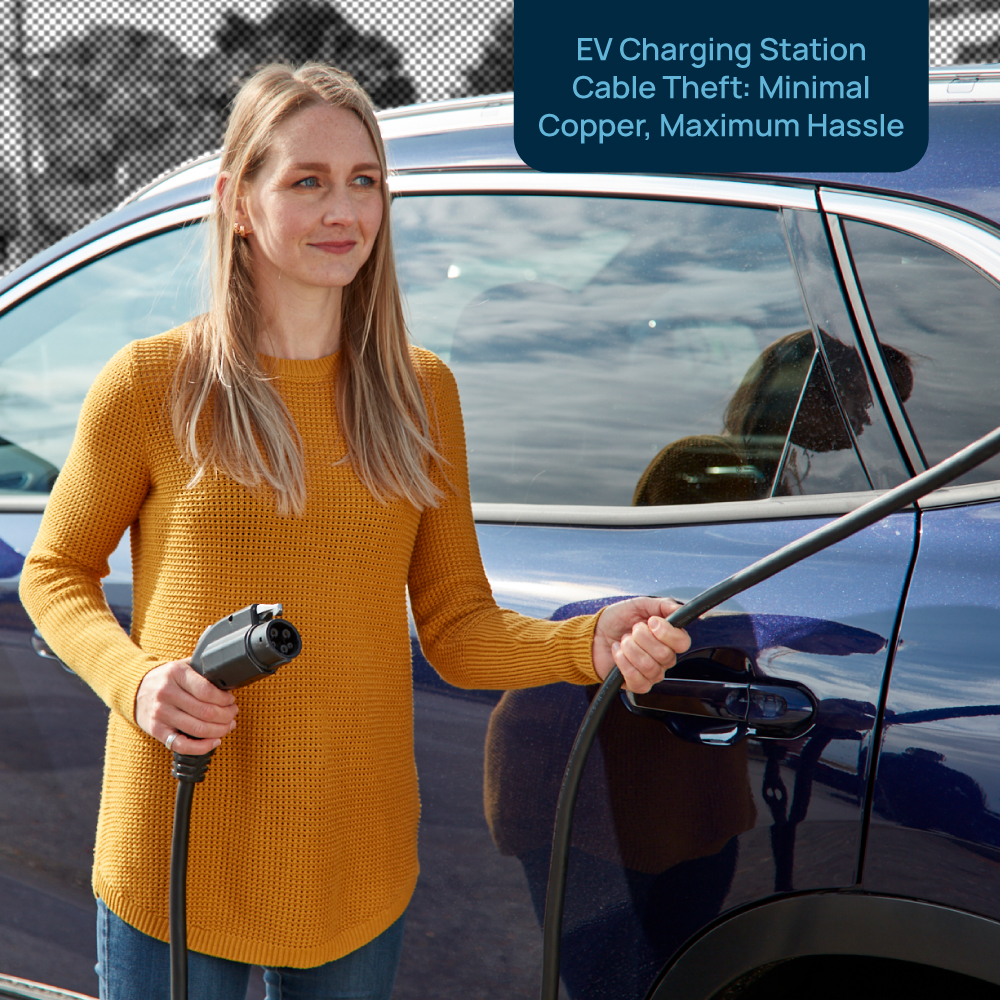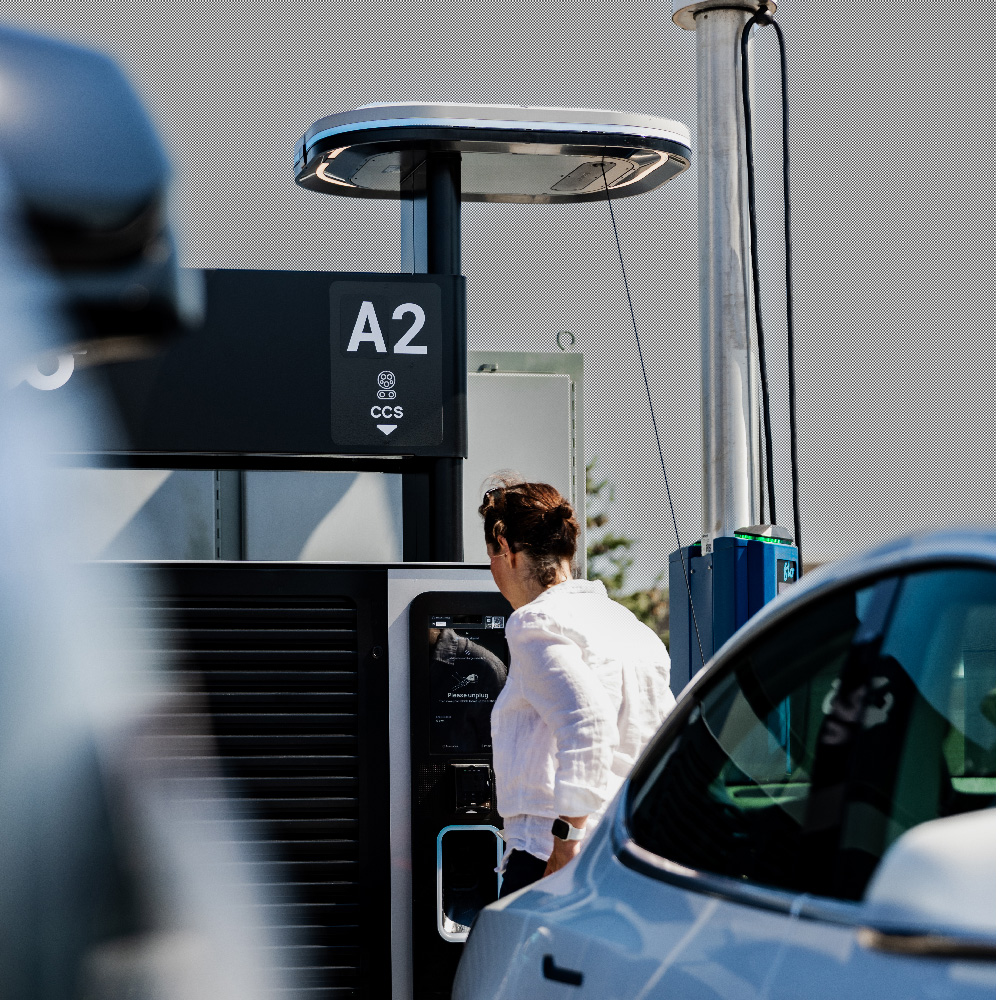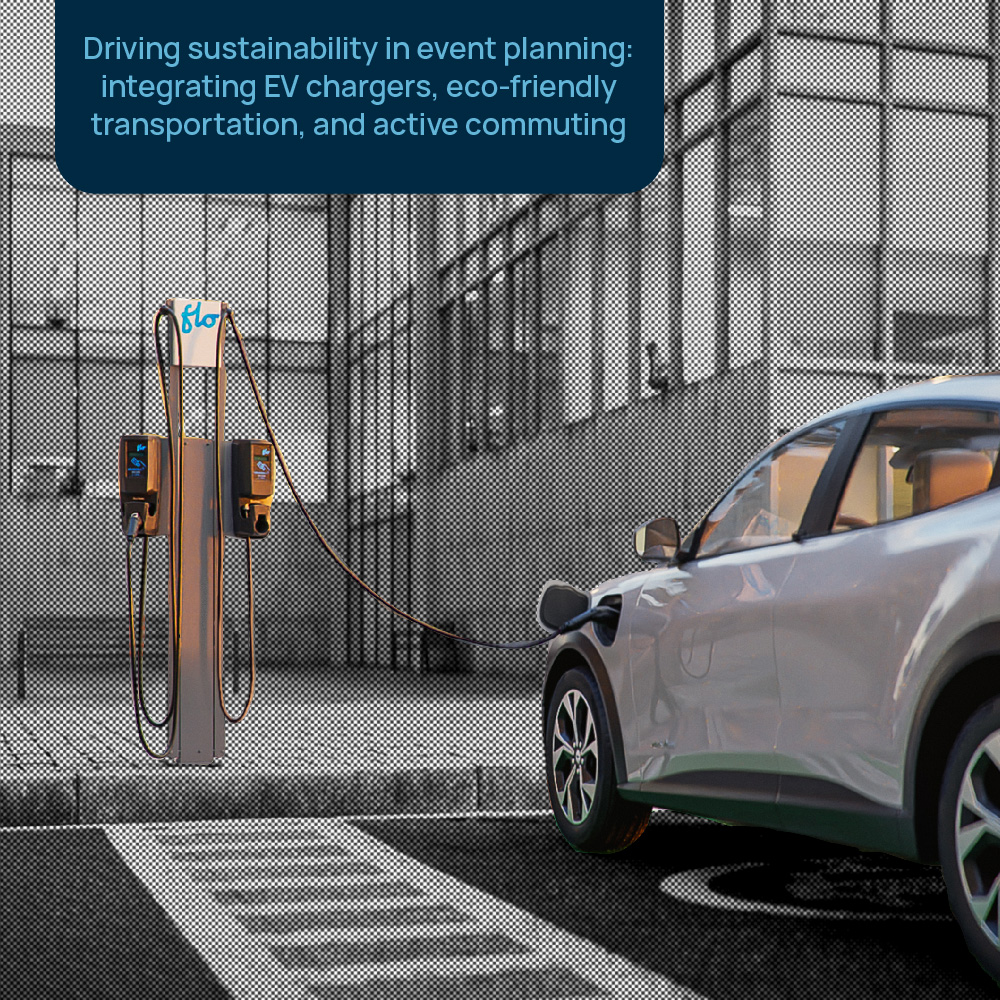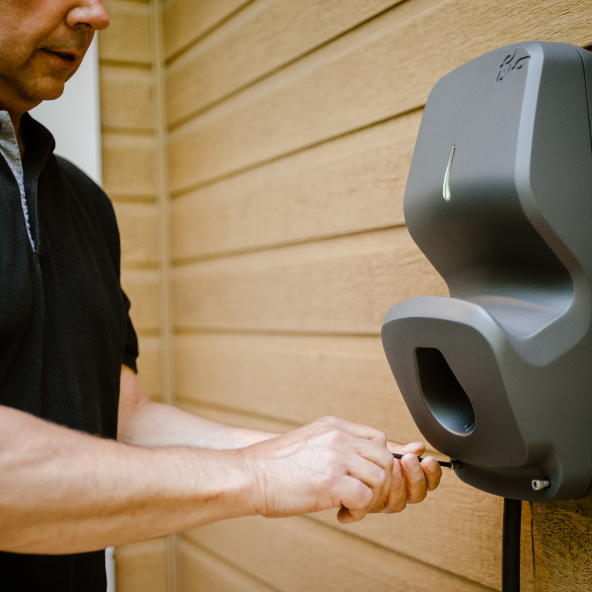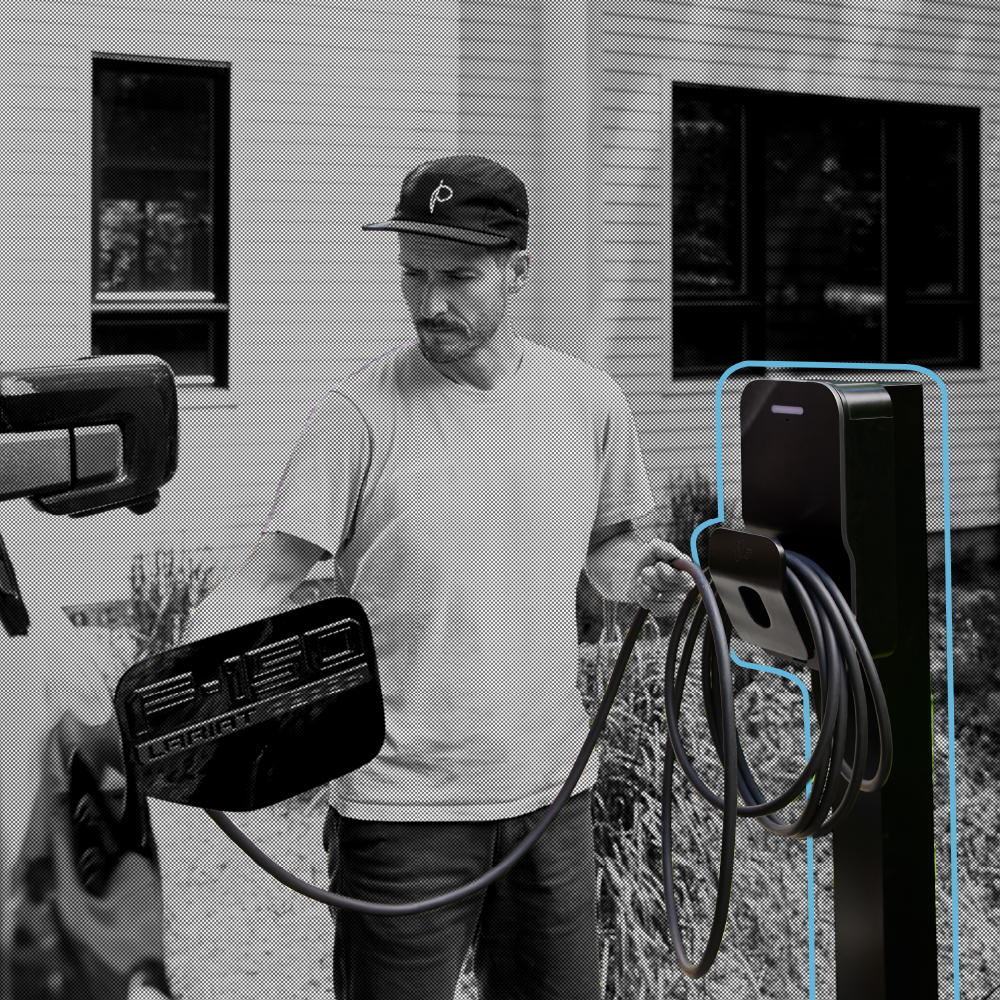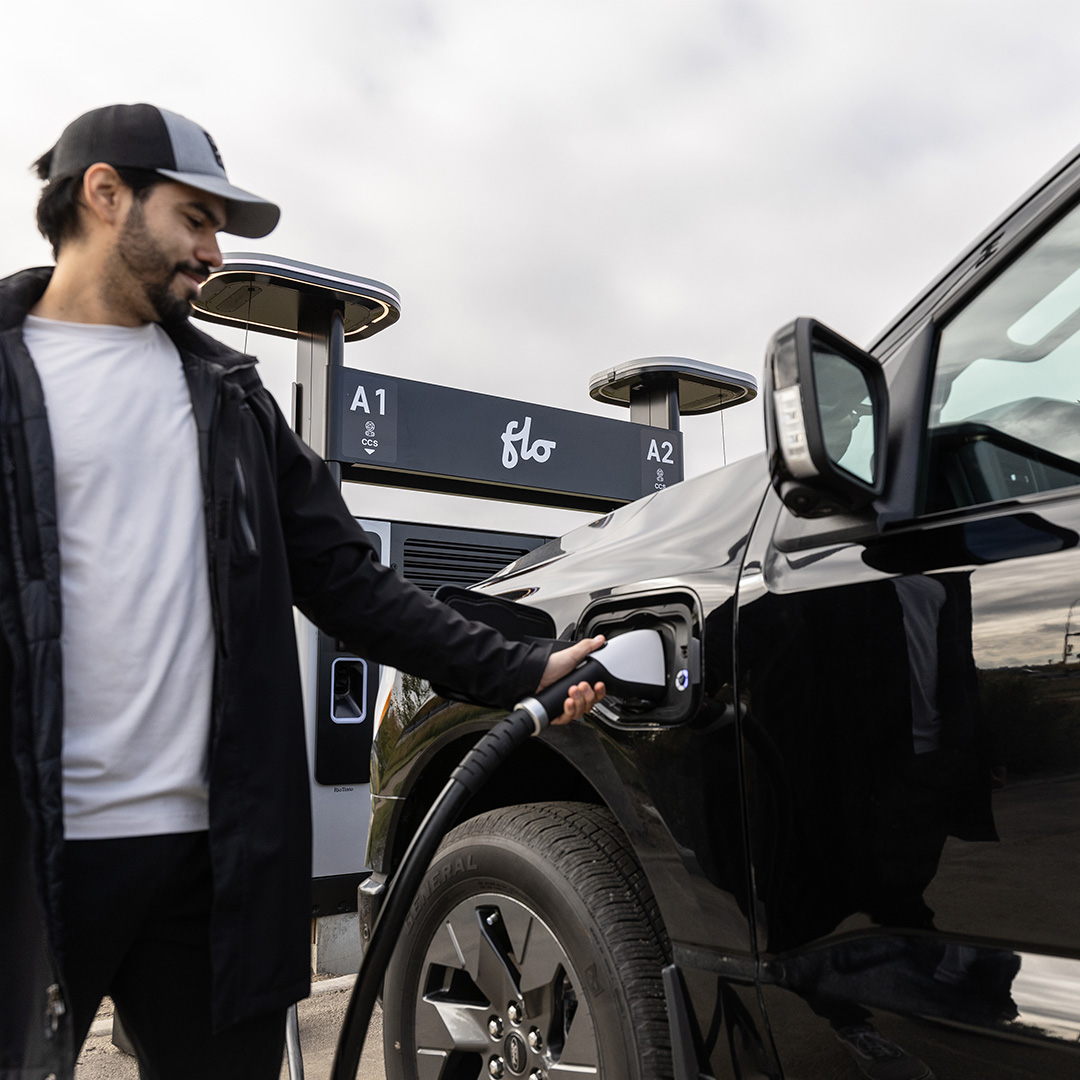- For EV Drivers
- For Business
- Incentives
- Alberta incentives
- British Columbia incentives
- Manitoba incentives
- New Brunswick incentives
- Newfoundland and Labrador incentives
- Northwest Territories incentives
- Nova Scotia incentives
- Nunavut incentives
- Ontario incentives
- Prince Edward Island incentives
- Quebec incentives
- Saskatchewan incentives
- Yukon incentives
- Products
- Insights
- Company
- Shop now
How to limit theft
Lately, some media outlets have reported thieves targeting electric vehicle (EV) charging stations, aiming to steal cables, with the hopes of selling copper wiring. With the increasing deployment of charging stations, it’s natural to wonder if this is going to be a theft growth industry. Behind the flurry of stories, is there a “there” there?
The short answer is that FLO, one of North America’s leading EV charging networks is not seeing a noticeable increase in the rate of service calls to deal with cable thefts, likely because the actual value of the copper in cables is not worth the time and serious safety risks involved in stealing and stripping plastic-coated cables and wires. It’s important to share this information because the flurry of media stories could actually increase copycat thefts, even though the economics and the risk do not make economic sense.
Let’s have a look at FLO’s data.
FLO has observed cable vandalism on chargers in our network, but the issue isn’t significantly worsening.
In the last quarter of FY2023, 23% of all L2 public curbside repairs by FLO were related to cable damage, not all of which pertained to theft. Many cable repairs are due to misuse (such as dropping the connector on the ground or pulling excessively on the cable), rather than clear cases of vandalism. This compares to 21% in the first three quarters of 2023, indicating only a slight increase.
Now, let’s explore the reality behind this issue and how FLO is addressing it.
When it comes to DC fast chargers, the numbers are also stable with a small increase. In the first three months of this year, 2% of DC fast charger service calls were for cable repairs compared to 2.9% for April-June of this year.
Minimal copper, maximum hassle
The amount of copper in EV charging cables is negligible and difficult to extract. The small quantity of copper would require specialized tools for removal, tools that are generally unavailable to the wider public. The effort involved in extracting this minimal amount of copper is not worth the hassle, especially considering the low monetary return it offers.
Consider a typical Level 2 charging station with a 25-foot cable, which contains about 5 pounds of copper. Current market prices for pure copper (around $5 a pound) might tempt thieves, but the reality is less appealing.Thieves would net a mere $5-$7 for unstripped cables at a scrap yard Thus, the financial reward hardly justifies the risk and effort involved.
The numbers for a DCFC are similar. The two cables on a DCFC have about 40 pounds of copper for just a $40 potential payout for the un-stripped cables.
Safety risks and impacts
Our charging stations are designed with the utmost safety in mind. However, tampering with them introduces significant risks. Not only does improperly severing an electric cable endanger the thief, but it also poses a potential hazard to the public. Additionally, many of our stations are monitored by video cameras, increasing the likelihood of culprits being caught, and deterring potential vandals.
Beyond the personal risks to potential thieves, cable vandalism directly impacts the daily lives of EV drivers. It disrupts commutes and trips, causing inconvenience and frustration. When a charging station is vandalized, it can take time to repair, leading to unplanned detours and delays for drivers who depend on reliable charging infrastructure. FLO is careful to update its app: if we are working to repair a station, we will mark it as out of service, but the fact remains that vandalism is a huge pain for everyone involved.
How to limit theft
To further mitigate the risk of cable theft and vandalism, several strategies can be put in place by station owners:
- Video cameras: Monitoring stations with video cameras acts as a deterrent and aids in identifying vandals.
- Well-lit areas: Placing charging stations in well-lit areas enhances visibility and reduces the likelihood of tampering.
- High traffic areas: Installing chargers in high-traffic areas increases surveillance and discourages malicious activity.
Read more: FLO Charges Ahead as the Unrivaled Leader in EV Charging Reliability Amidst CBC Marketplace Test
FLO’s commitment to rapid repairs
At FLO, we take vandalism seriously and are committed to maintaining the reliability of our network. Our Customer Experience team is on standby 24/7 to address issues promptly. As the supplier of the hardware, software, and network, we can advance repairs efficiently. This ensures that any disruptions are minimized and that our charging stations can be quickly brought back online.
While cable theft at EV charging stations may grab headlines, the risk of electrical injury, minimal copper content in charging cables and significant hassle involved in extracting it make such thefts unprofitable and risky.

